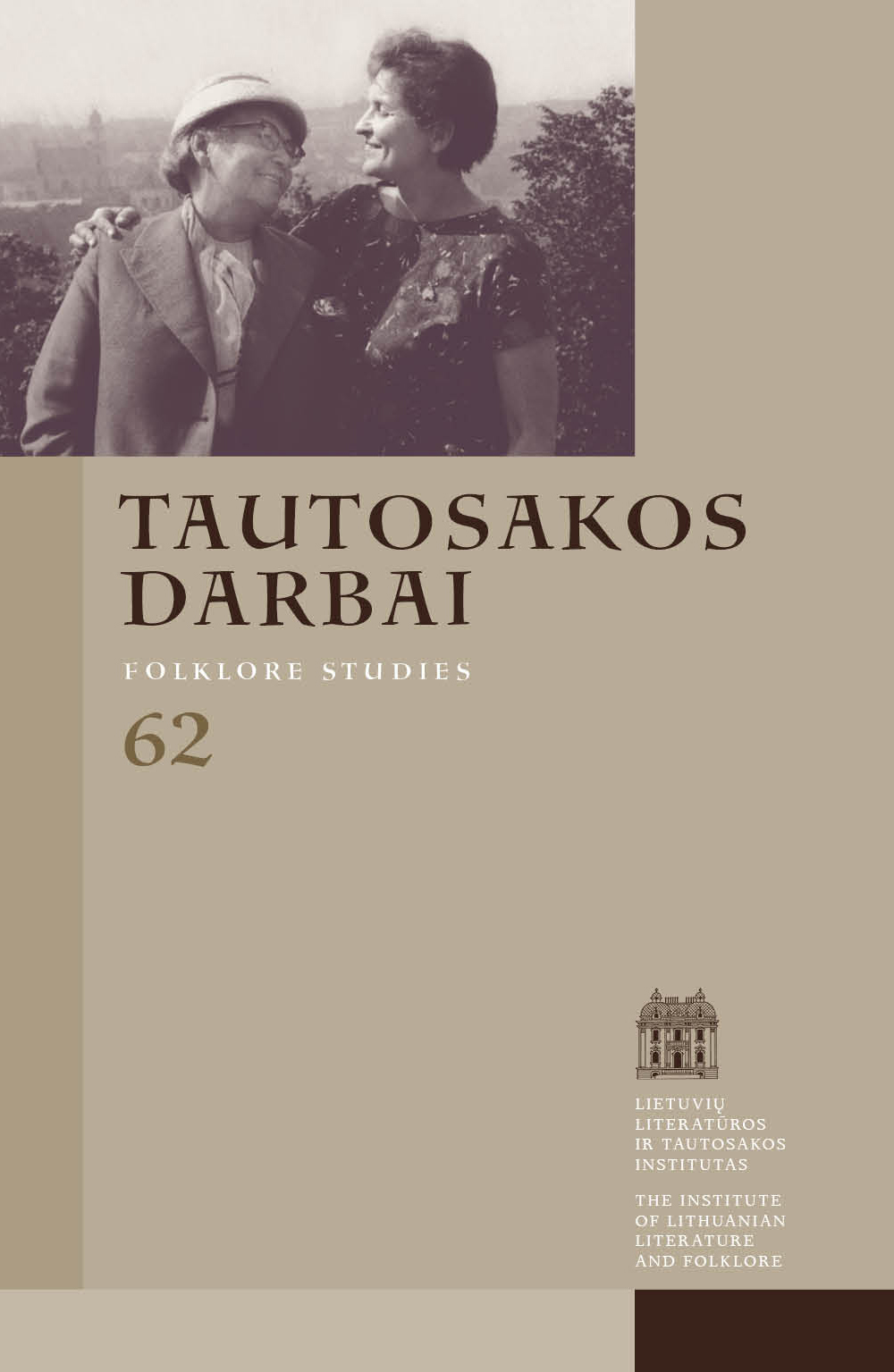Kalėdinės tėvų ir vaikų dovanos kaip nekalbinė rūpesčio komunikavimo forma
Santrauka
Visuomenės apklausos įvairiose šalyse, tarp jų ir Lietuvoje, liudija, kad Kalėdos – intensyviausias dovanų teikimo metas. Šių dovanų teikimo centre atsiduria patys artimiausi šeimos nariai – tėvai apdovanoja vaikus, o šie, jau užaugę, patys perima dovanojančiojo vaidmenį. Fenomenologinėje antropologijoje atliekami kasdienių praktikų tyrimai leido į šį plačiai žinomą paprotį pažvelgti per asmeninių pasakojimų vaizdinius. Siekiant atskleisti, kaip kuriamas ypatingas dovanojančiojo ir gavėjo ryšys, buvo analizuojami individualūs patyrimai, užfiksuoti kaip nestruktūruoti interviu su pateikėjais, ir pačios autorės prisiminimai. Pastebėta, kaip, bėgant metams, pasikeičia dovaną duodančiojo ir gaunančiojo vaidmenys, tampantys ne tik inversiniai, bet ir asimetriniai – pareiga atsilyginti už gautas dovanas perkelia šio veiksmo intenciją ateinančioms kartoms. Kalėdų kontekste ypatinga svarba tenka ir dedamų pastangų intensyvumui, tarp jų – miego ir bemiegių naktų sąryšiui. Tyrimas leido pažvelgti į dar vieną aspektą – per dovaną, kaip nekalbinę komunikacijos formą, artimiesiems pavyksta susikalbėti – be žodžių, be atskiro reflektavimo, bet per patiriamą žinojimą, fenomenologijoje vadinamą gyvenama patirtimi (angl. lived experience).
Atsisiuntimai
Skaitomiausi šio autoriaus(ų) straipsniai
- Rūta Latinytė, Giedrė Šmitienė, Vaiva Aglinskas, Irena Žilienė, Informacija , Tautosakos darbai: T 68 (2024): Tautosakos darbai
- Rūta Latinytė, Ne dovana: fenomenologinis kasdienės patirties tyrimas , Tautosakos darbai: T 57 (2019)
- Rūta Latinytė, Atstumtosios ir varžovės: vienišos motinos stereotipai medijose ir gyvenimo pasakojimuose , Tautosakos darbai: T 70 (2025): Tautosakos darbai
